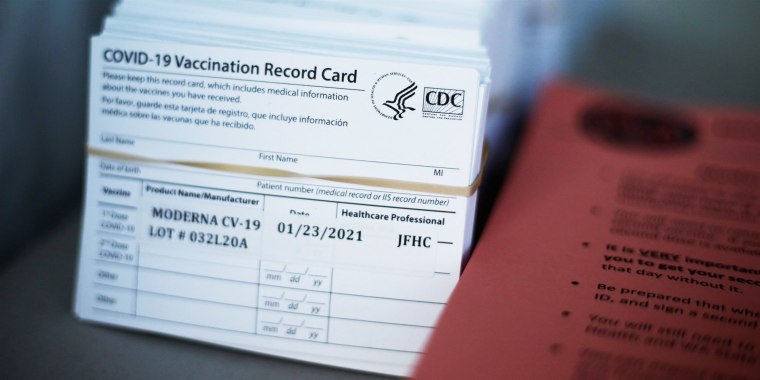Many people who've received the COVID-19 vaccine couldn't help but share their excitement — and vaccination cards — on social media. But the Better Business Bureau is advising against doing so for two very good reasons.
The first: The cards contain personal identifying information, such as your name, birthday and where you were vaccinated, so posting it online could make you vulnerable to identity theft, the nonprofit, which focuses on improving marketplace trust, advised in an online statement. This behavior is even riskier if you have lax privacy settings on your social media profiles.
Tell us: Have you received your COVID-19 vaccination?
The second reason is to prevent scammers from creating phony COVID-19 vaccine cards, the organization said. The more pictures of the cards available, the easier it is to forge them, and "it's only a matter of time" before such cons happen in the U.S., according to the nonprofit.
To share your excitement safely on social media, consider instead posting a picture of the sticker that you may receive from the health care facility after getting vaccinated, which shouldn't have personal info on it. You could also add a COVID-19-themed frame to your profile picture on Facebook.
Next, make sure that your privacy settings reflect whom you're actually comfortable with seeing your posts, for example, just followers or friends.
Last, be aware of the other topics you're posting about on social media, the bureau recommended. Why? Sometimes we post about topics, such as favorite movies or old cars, that may hint at passwords or commonly used security questions. This is especially useful for someone trying to steal your identity.
In recent weeks, the FBI, Interpol and other organizations have warned of fake websites advertising false COVID-19 cures and vaccines, Reuters reported. Some online scammers have used emails and messaging apps to claim they can deliver shots within days for as little as $150. Others have used robocalls to impersonate government officials.
The U.S. Department of Health and Human Services, FBI and Department of Justice have asked the public to report any COVID-19 vaccine scams, from people asking for money in exchange for the vaccine to online ads.


